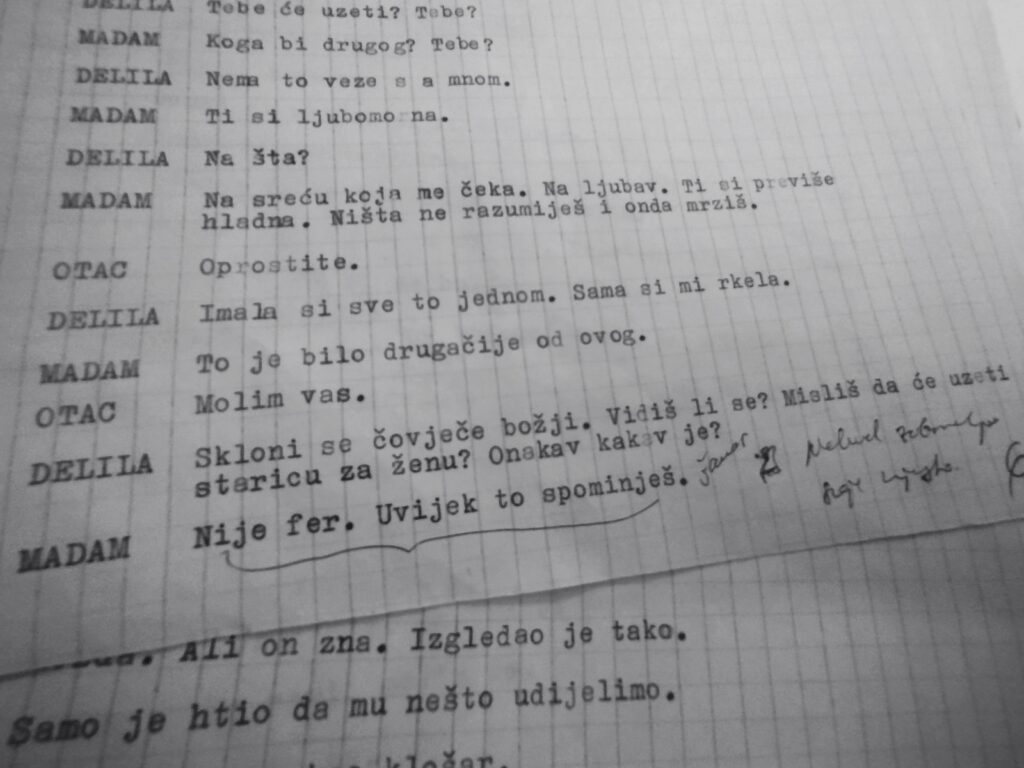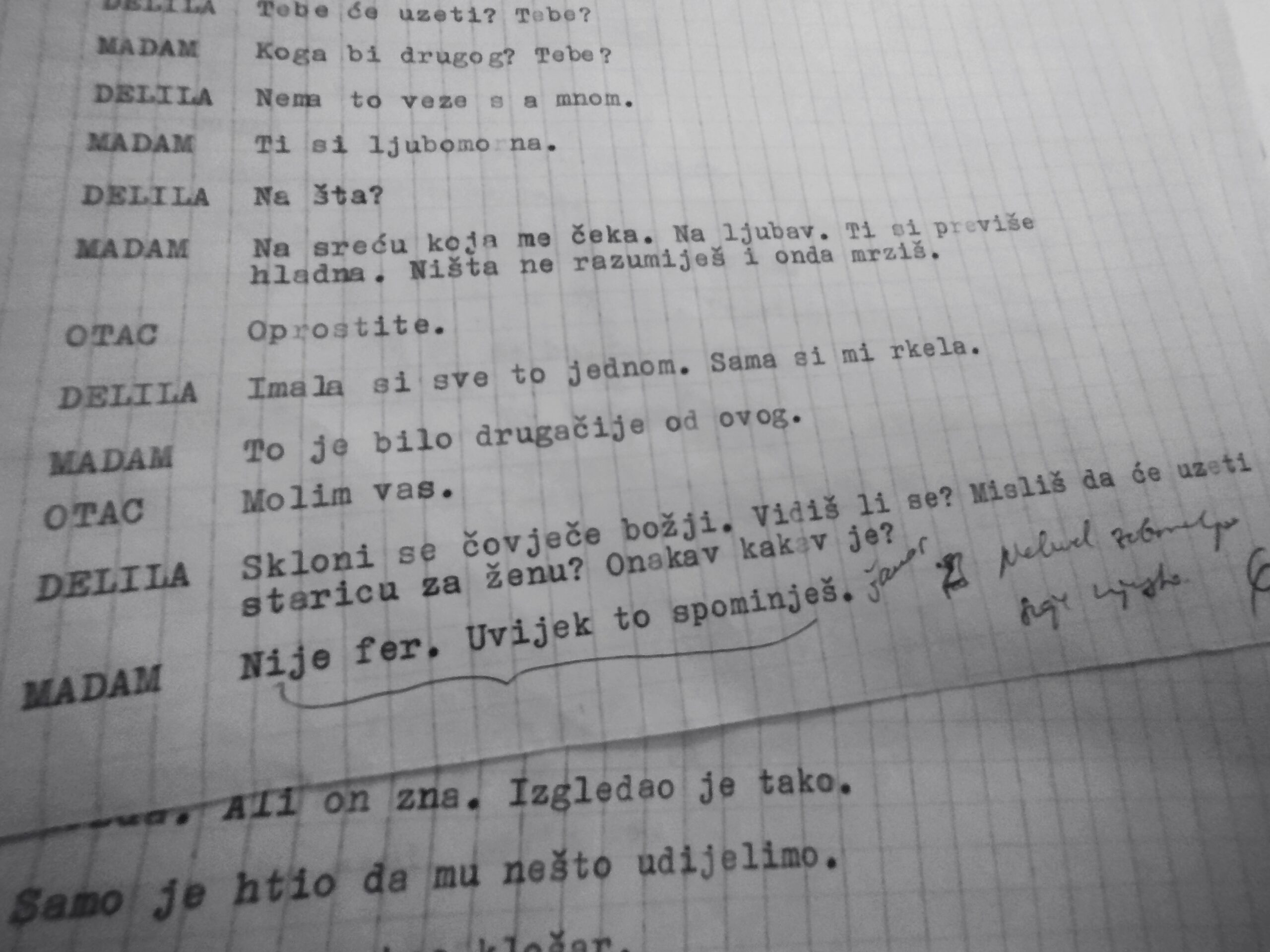
Bordel Eden is a play conceived as a closed world, a stage on which an entire society is refracted: figures of prostitutes and clients, a failed painter, a father searching for his son, all cross the boundaries set by fate and reveal a broader political and social horizon. Inner conversations, petty quarrels, scars on the body, the smell of cabbage or a dry cough are as powerful as monologues that summon history, faith, and death. In this way, small human misery shows itself to be inseparably bound to the great questions of an era.
At the center of the play lies the brothel as a symbol — both refuge and hell at the same time. It is a space of exchange in the broadest sense of the word: trade in bodies, trade in emotions, trade in illusions and faith. Every exchange carries within it a trace of violence, but also a trace of tenderness. The characters, even when stripped down to the ultimate limits of poverty, remain human in their need to find meaning and a glimmer of light. The play does not concern itself with the question of salvation, but with the question of survival: how, in a world where everything can become an object of trade, the possibility of love or truth still persists.
Bordel Eden is not a simple work of social critique, nor a realistic fresco of a single time. It is a dramatic construction in which voices continually clash, overlap, and intertwine. The polyphony of dialogues and monologues creates a sense of constant pressure, while the boundaries between private and public, intimate and political, grow porous. In this polyphony, the brothel ceases to be merely a setting and becomes a metaphor for the entire society: a world in which everyone plays roles, everyone sells themselves, everyone buys, while at the same time searching for something authentic and real.
Bordel Eden succeeds in uniting the comic and the tragic, the grotesque and the tender, the banal and the metaphysical in the same scene. As the characters move through episodes that often appear like improvised shards of life, their voices reveal a powerful need for meaning. The play thus becomes a space of confrontation: with social inequalities, with the collapse of ideals, but also with the most intimate human fears.
Ultimately, Bordel Eden leaves the impression of something that is both performance and allegory, both document and myth. It is a piece that does not end when the curtain falls, but continues to resonate in the spectator or reader: as a question of what remains of humanity in a world turned into a brothel, and where paradise might still be sought in the midst of mud.
Bordel Eden is a harsh answer to the questions of our time. It is a mirror thrust into the faces of our contemporaries. And as cruel, primitive, corrupt, tender, loving, empathetic, and deserving as they may be, so too is the drama Bordel Eden.

